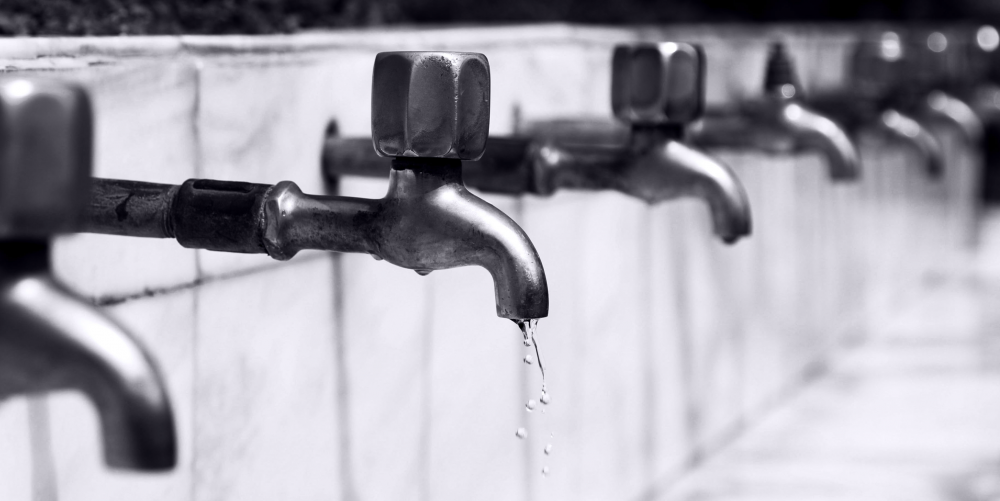
Water, Sanitation and Hygiene - Key Projects
Project Name: Water system for Resilience to Climatic Variability and Social Vulnerability
Client: Institute for Social and Environmental Transition (ISET)
Taru undertook the study for Institute for Social and Environmental Transition (ISET) on behalf of National Oceanic and Atmospheric Administration (NOAA) to design and develop a set of tools to help managers assess their water system for resilience to climatic and social variability, identify and evaluate potential adaptation strategies, and create a process to deal with climatic and social change. Frameworks and tools were developed to enable communication between the formal and informal water sectors.
Project Name: Flood Disaster Management Information System
Client: Gujarat State Disaster Management Authority (GSDMA)
Taru undertook the initiative of technology development for the GSDMA supported Flood Disaster Management Information System (FDMIS). FDMIS is an internet-based decision support system to help the flood management and relief operations team during a flood. Emphasis was placed upon providing highly visual and easily understood information to emergency response managers. This software provided a highly accessible platform for disseminating flood management information through - Flood Impact and Zone Assessment, Risk Assessment of Population and Infrastructure, Human Loss Estimation and, help in Coordination of Relief Activities.
Project Name: WASH Alliance for Visioning Enhanced Sustainable Service at Scale (WAVESSS) in the State of Odisha
Client: UNICEF
The project aimed at establishing a process of self renewal and increasing collaboration, contributing towards, increased equity and use of safe sanitation facilities at household level through an improved policy and implementation of TSC. Improved water quality and water sources enhanced collaboration between departments in the area of Operation and Maintenance. The project also aims at improved water and sanitation access and hygiene education at the institutional level (schools and anganwadi centres) by enhanced collaboration between departments.
Project Name: Baseline Study on Sanitation in Urban India
Client: World Bank
The Study aims at establishing a hitherto non-existent baseline of the Urban Sanitation situation in India with a view to assist the Central, State and local governments in developing a policy framework, planning for, and prioritizing urban sanitation interventions and investments. A mix of quantitative and qualitative techniques are proposed to be used for collecting and analyzing data on sanitation coverage across various socio-economic groups and through various technological options. An investigation into institutional arrangements for Urban Sanitation service provision and economic and financial aspects of sanitation provision (including issues around capital and O&M expenditure, system utilization, tariff, revenue collection, etc.) are other major components of the Study and will ensure that the exercise has added dimensions that go beyond conventional Baseline Studies.
Project Name: Evaluation of DFID India’s Support to the Water and Sanitation Program- South Asia (WSP-SA)
Client: DFID UK
The project covered the assessment of the impact of such support on furthering Rural Water Supply and Sanitation (RWSS) Sector Reform in the country. It further drew lessons to inform DFID India’s future role in the Indian RWSS Sector and focused specially on Andhra Pradesh (AP), Kerala and Maharashtra.
Project Name: Study on Water Resources, Water Resource Management Interventions and Participatory Village Water Resource Planning
Client: Action Aid and Palamu District Administration
It assessed the status and examined parameters of food security, water and forestry resources in normal and drought periods in Palamu. This assessment was then cross-linked to the socio-economic situation of households and communities, development institutions and the structure of economic organization in the district to prepare detailed village level mitigation plans for 50 villages in the district, and recommendation sets for other villages.
Project Name: Rapid Assessment of Rural Water Supply and Sanitation Sector (RWSS) and Development of Sector Vision, Policy and Action Plan for Bihar
Client: UNICEF
The experience of SRP and TSC implementation in 67 and 374 (pilot) districts respectively, have led to development of a new flexible approach for states to develop a Vision and Action plan, in line with principles of fiscal federalism, for RWSS sector customized to their situation. The Memorandum of Understanding (MoU), drawn between states and GoI (RGNDWM), would be an enabling instrument for the states to access technical assistance and funding support. This Sector Assessment was defined as the first in a series of sequential actions in the State for preparation of a state strategy and finalisation of the Memorandum of Understanding (MoU) with the Government of India.
Project Name: Technical Support Agency for Developing a Solid and Liquid Waste Management Model for Rural Sanitation in Rajasthan
Client: Water & Sanitation Program, World Bank
Partner Orgainsation(s): Ernst & Young, Indian Green Services, SKAT
The approach of the initiative is to implement integrated Solid & Liquid Resource Management (SLRM) methods that go beyond managing generated waste to preventing waste generation. Current resource flow uses excessive raw materials and generates piles of waste causing resource depletion. The initiative so far helped in evolving participatory process in the preparation of Detailed Project Reports (DPRs) on solid and liquid management using cutting edge waste audit tool, solution scoping, and business planning methods. The DPRs have been approved by the Government of Rajasthan as one of the model participatory DPRs. The subsequent phase will see the implementation of the plan and documentation of learnings for developing the guidelines.
Project Name: Rural Water Supply and Sanitation (RWSS) Service Providers in Bihar and Jharkhand to Plan for Change Management
Client: UNICEF
State-level service providers were engaged systematically to develop a Change Management Agenda and Plan for themselves aimed at improving community participation, source and system sustainability and social equity. In undertaking the preparation of the State-level Change Management Action Plans, the Taru Team acted as the Secretariat to the State-level Change Management Core Groups (CMCGs) formed in the two States.
